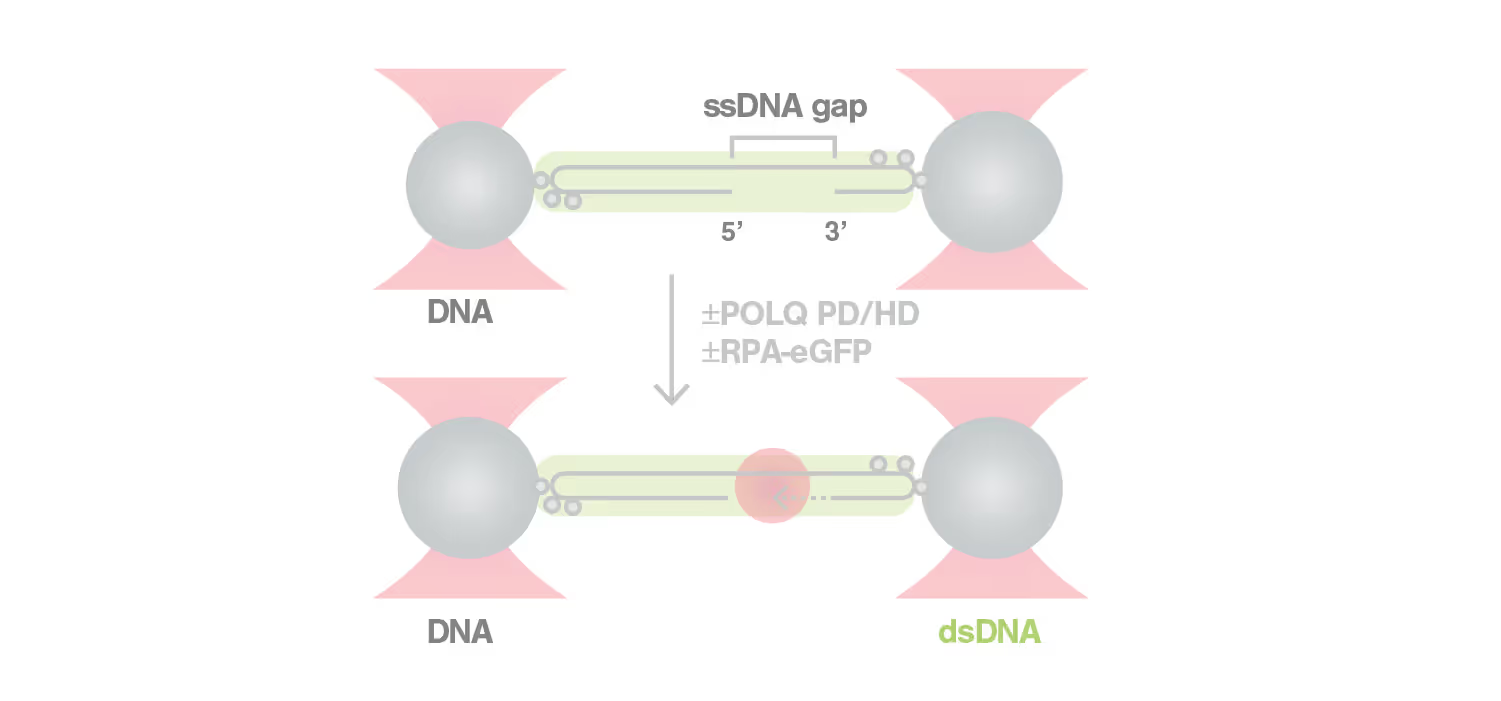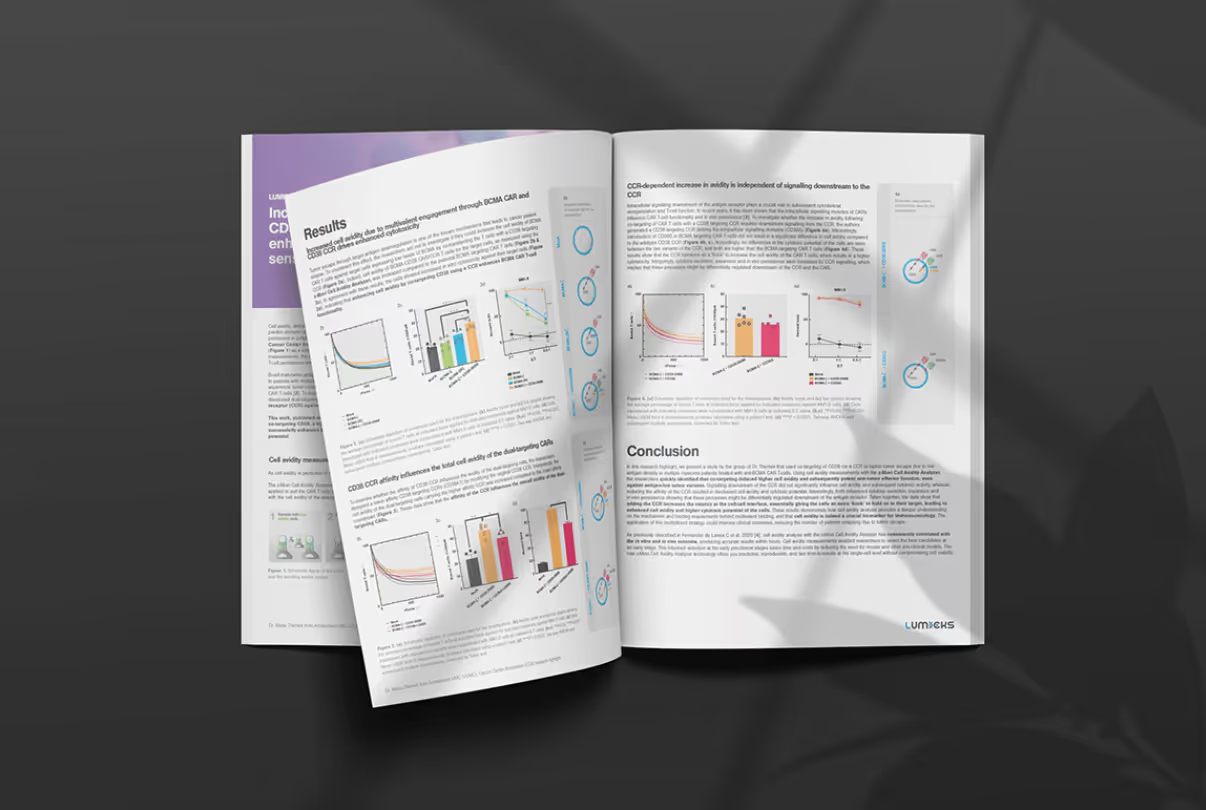Double-stranded breaks (DSBs) are among the most serious and lethal types of DNA damage known that can lead to cell death and cancer. POLQ is an enzyme in humans that we know plays a crucial role in DSB repair and is overexpressed in many types of cancer, promoting cancer cell survival.
Researchers from The Francis Crick Institute, London, led by Simon Bolton, used a C-Trap® optical tweezer – fluorescent imaging system in combination with ensemble studies to directly measure DNA polymerase theta (POLQ) DNA extension efficiencies and visualize that POLQ seals post-replicative single-stranded DNA (ssDNA) gaps, which confirmed their ensemble data.
Previous studies have shown a synergistic interaction between POLQ inhibitors and poly (ADP-ribose) polymerase (PARP) inhibitors—the first drug to be clinically approved for a novel class of cancer therapies, including BRCA deficient cancer therapy. However, these studies were unable to explain the mechanism underlying this synergistic interaction.
This discovery by Simon Boulton and his team highlights, for the first time, the potential of POLQ inhibitors as second-generation drugs for the treatment of BRCA-deficient cancers, particularly those that have developed PARP-inhibitor resistance.
These findings were published in the journal Molecular Cell in the article “POLQ seals post-replicative ssDNA gaps to maintain genome stability in BRCA-deficient cancer cells.” Congratulations to all the authors!
Are you interested in using dynamic single-molecule tools like the C-Trap for your research? Do not hesitate to contact us for more information.
Top image adapted from Belan et al., Molecular Cell, 2022.









